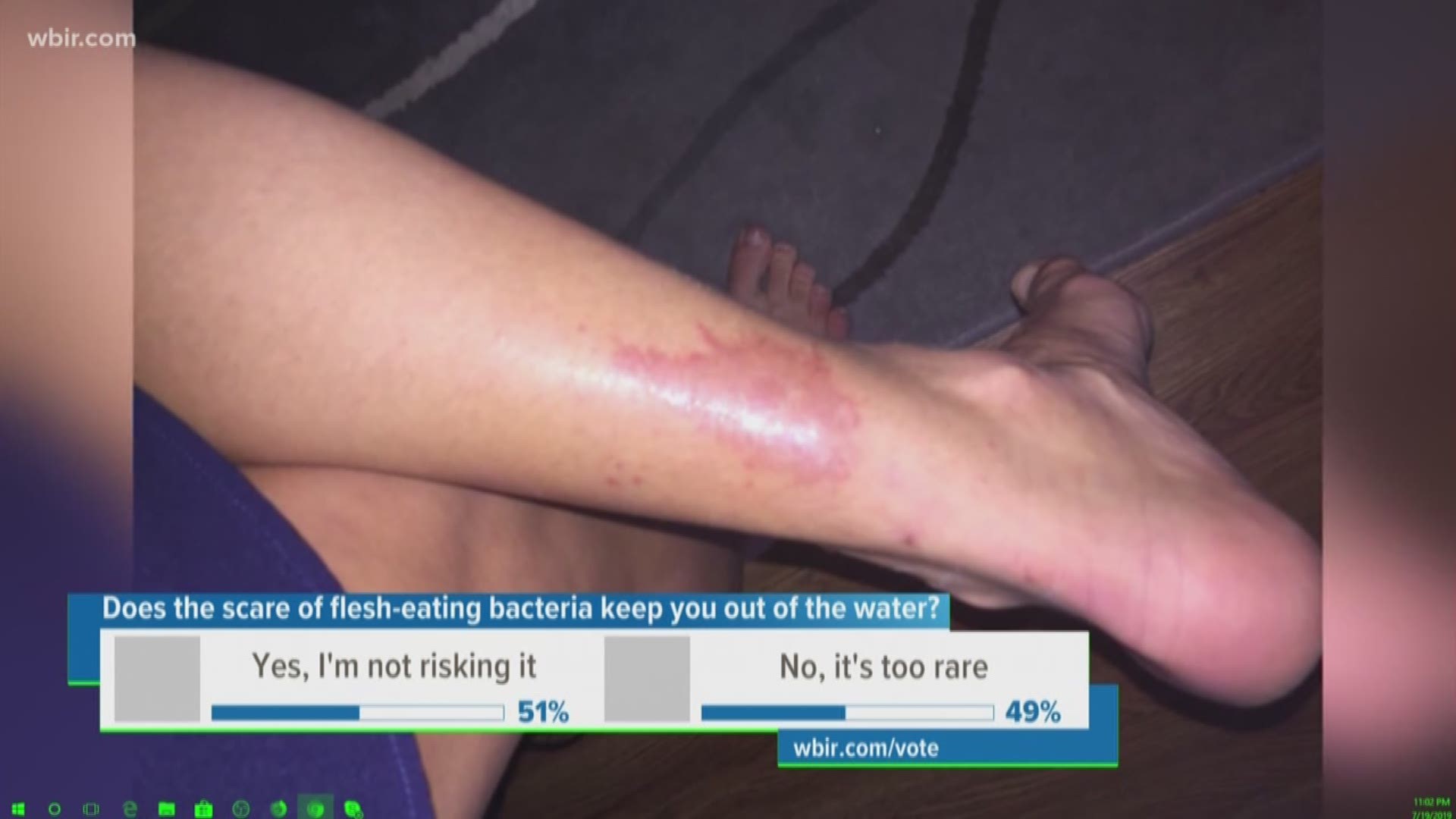KNOXVILLE, Tenn. — It's a fear that re-emerges every summer: Will I contract 'flesh-eating bacteria' at the beach?
It's possible, but not necessarily easy. In fact, health officials said it's incredibly unlikely.
Cases usually begin making national headlines and onto social media when summer arrives, and a handful of stories might have some people rethinking their beach vacations.
In 2019, people have reported contracting a flesh-eating disease in states like Texas, Florida, Georgia, Alabama, Mississippi, Virginia, Maryland and Delaware.
Take note: All of those states are along the East and Gulf coasts.
Out of all reported cases in the U.S., three people died. One of those was a Memphis man who died last week after being infected by a certain strain of vibrio bacteria while on vacation in Destin, Florida.
His daughter wrote on Facebook that 12 hours after being in the water, her father, who was battling cancer, woke up with a fever and chills.
Doctors said he died from a vibrio vulnificus infection a couple days later.
"We hear more about it now because of the social media and the hype that this kind of infection makes," said Dr. Mahmoud Shorman, an infectious disease specialist at UT Medical Center.
Vibro has many strains, and vibrio vulnificus in particular is one of a few types of bacteria that can cause necrotizing fasciitis, which is the deadly infection more commonly called 'flesh-eating bacteria' or 'flesh-eating disease.'
Necrotizing fasciitis is a dangerous infection that spreads rapidly that anyone can potentially catch, but it's also extremely unlikely to occur in healthy people.
"As infectious disease doctors we see like two or three of these cases a year," said Shorman.
He said most people don't need to worry about contracting a flesh-eating infection.
"People who are healthy or don't have open wounds or cuts on their skin should not really worry about many of these," said Shorman.
It's people with weak immune systems who are more likely to contract it. That includes people with diabetes, liver or kidney disease, and those going through chemotherapy.
Chances are heightened if they have open wounds, where the bacteria can enter the body and infect them.
"Even something like an insect bite can be a portal of entry for this," said Shorman.
Most types of vibrio infections aren't 'flesh-eating.' The Centers for Disease Control said a vast majority of vibrio infections reported in the U.S. resulted in non-serious gastrointestinal illnesses caused by eating raw or undercooked seafood -- oysters in particular.
The CDC estimates nearly 80,000 people, primarily those living along the coast where the bacteria can thrive in warm saltwater, contract vibriosis each year. And out of those 80,000 cases -- only 100 infections resulted in death.
In Knox County from 2013 - 2017, only seven cases of vibrio were reported.
The health department said those cases are typically travel-related, contracted in the ocean by people on vacation.
"Summertime is the time where that water is warmest and that's the best environment for this type of infection," said Shorman.
If someone has an open wound or a compromised immune system, Shorman said it's best to be extra cautious when entering any body of water. Other types of bacteria that can cause necrotizing fasciitis as well as other serious diseases can be found in ocean, river, lake and pond waters, too, and Shorman said not to risk it.
"Be smart," he said.
Cover open wounds well before entering the water.
While rare, signs you've contracted some form of necrotizing fasciitis will be if you notice redness and swelling, followed by possible fever, nausea and severe pain.
The rash usually spreads very fast at about an inch an hour. If you notice these symptoms, go to the hospital immediately. If untreated, this can cause the loss of a limb or death.
If you're worried about your next trip to the beach, the National Centers for Coastal Ocean Science have been tracking areas where vibrio vulnificus is known to thrive.

